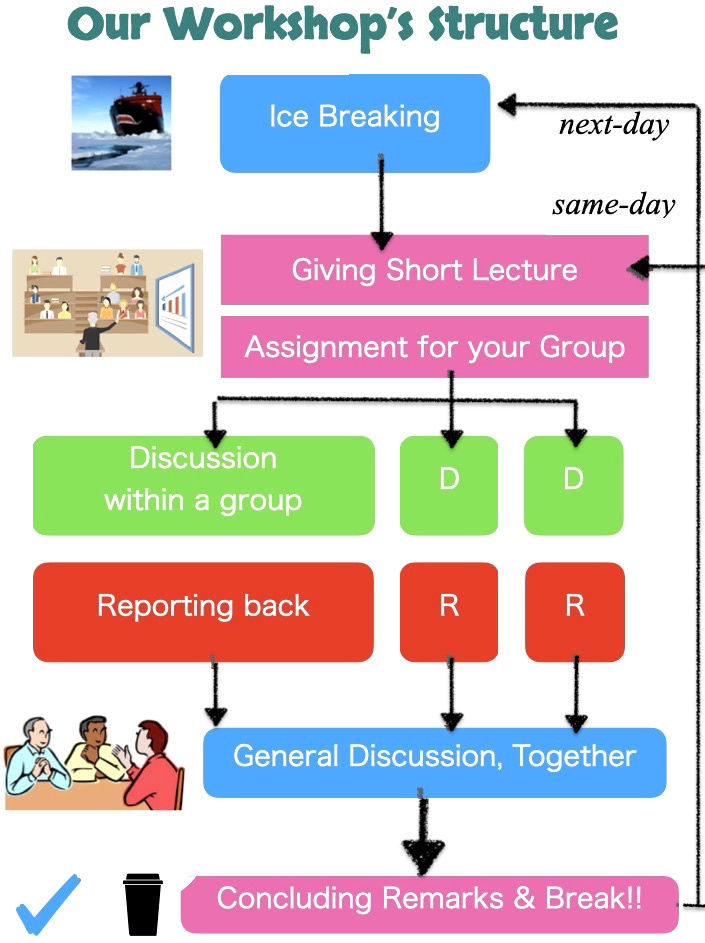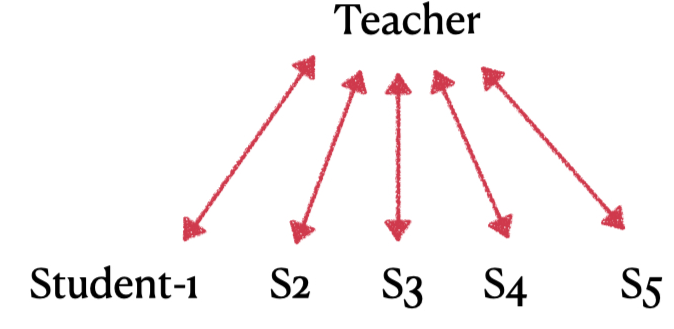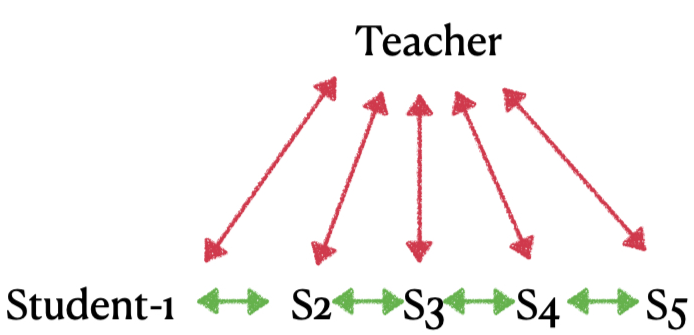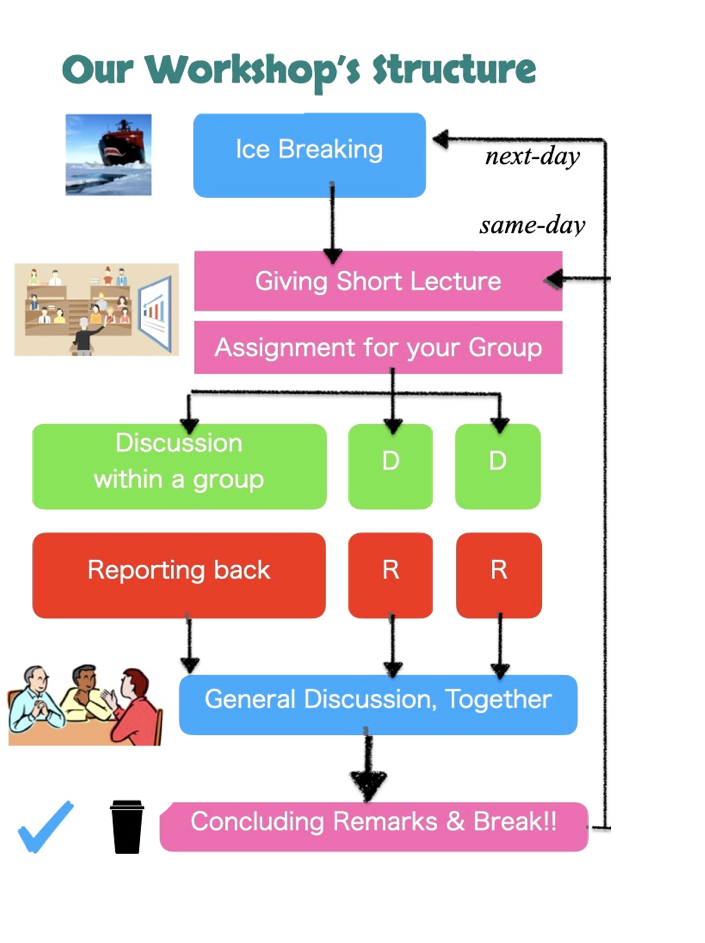
Let's make your dialogic workshop more fun!
or Our workshop's time and logic structure
Introduction to Organizing Workshop in Your Class
1. What is workshop?
2. Two main reasonings for having our problem-based workshop
3. Time and logic Structure of our Workshop
***
 Lecture Lecture |
|
 |
 |
***
 1. What is workshop?
1. What is workshop?
The Collins Dictionary says, Workshop is "a period of discussion or practical work on a particular subject in which a group of people share their knowledge or experience." -Workshop.
2. Three main reasonings for having our problem-based workshop
"Problem-based
learning (PBL) is a student-centered pedagogy in which students learn
about a subject through the experience of solving an open-ended problem
found in trigger material. The PBL process does not focus on problem
solving with a defined solution, but it allows for the development of
other desirable skills and attributes. This includes knowledge
acquisition, enhanced group collaboration and communication. The PBL
process was developed for medical education and has since been
broadened in applications for other programs of learning. The process
allows for learners to develop skills used for their future practice.
It enhances critical appraisal, literature retrieval and encourages
ongoing learning within a team environment. The PBL tutorial process
often involves working in small groups of learners. Each student takes
on a role within the group that may be formal or informal and the role
often alternates. It is focused on the student's reflection and
reasoning to construct their own learning. The Maastricht seven-jump
process involves clarifying terms, defining problem(s), brainstorming,
structuring and hypothesis, learning objectives, independent study and
synthesizing. In short, it is identifying what they already know, what
they need to know, and how and where to access new information that may
lead to the resolution of the problem. The role of the tutor is to
facilitate learning by supporting, guiding, and monitoring the learning
process.The tutor aims to build students' confidence when addressing
problems, while also expanding their understanding. This process is
based on constructivism. PBL represents a paradigm shift from
traditional teaching and learning philosophy, which is more often
lecture-based. The constructs for teaching PBL are very different from
traditional classroom or lecture teaching and often require more
preparation time and resources to support small group learning."- Problem-based learning.
3. Time and logic Structure of our Workshop
Time and logic
Structure of our Workshop. Our workshop is constituted from seven
steps, including introductory "Ice Breaking" time (IB time); The main
body of our Problem Based Workshop is constructed from cyclic six
sections; (i)Giving short lecture by teacher, (ii)Assignment for your
group, (iii) Discussion within a group, (iv) Reporing back, (v)General
discussion, and (vi) Concluding remarks, and Coffee or Tea Break.
Links
Bibliography
other informations
Copyleft, CC, Mitzub'ixi Quq Chi'j, 1996-2099